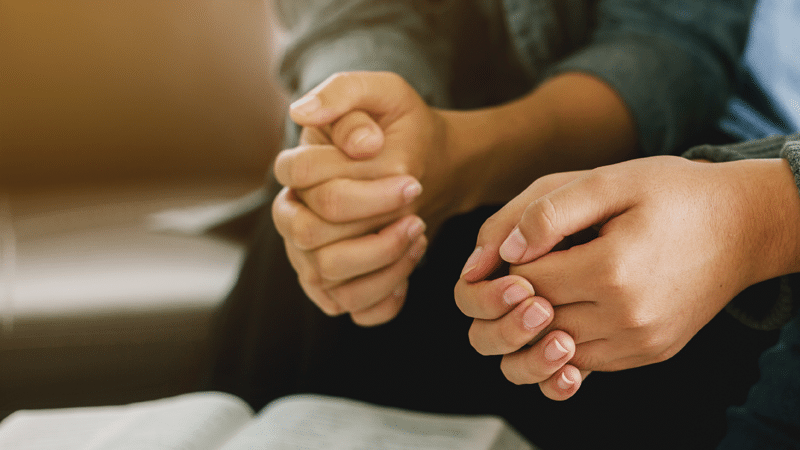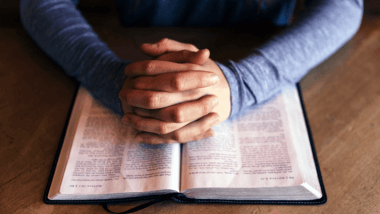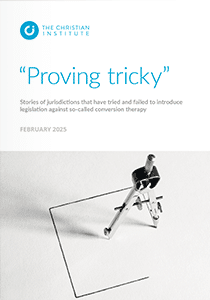The Christian Institute has told the Prime Minister that it is ‘alarmed’ by the latest threat to prayer from a leading LGBT activist.
The letter to Boris Johnson and Women and Equalities Minister Liz Truss, follows Jayne Ozanne’s calls for “gentle non-coercive prayer” on sexual ethics to be included in legislation banning LGBT conversion therapy.
Speaking to The Guardian, Bishop of Manchester David Walker said he supports prosecuting prayer, but does not think “gentle non-coercive” prayer should be included. However, Ozanne, a member of the General Synod, said she would “strongly refute” the concession.
Violation
Ozanne claimed “all prayer that seeks to change or suppress someone’s innate sexuality or gender identity is deeply damaging and causes immeasurable harm”.
Responding, the Institute told the PM: “While the Institute does not oppose a ban that protects people from harmful pseudo-medical practices, the idea that ‘gentle non-coercive prayer’ should be included in a list of illegal actions is alarming. In any event, it would violate the human rights of believers.”
“This view is confirmed by a legal opinion from Jason Coppel QC, one of the UK’s leading human rights lawyers, which says a conversion therapy ban encompassing ordinary prayer ‘would be likely to violate Convention rights’.”
‘Dark days’
It continued: “Those pushing for the ban to include ordinary prayer seem to attribute the worst possible motives to those of us who hold different theological beliefs from them. They are not willing to listen to mainstream Christian groups or to their concerns.
“Now they have gone a step further by stating that the legislation should cover not only practices they consider coercive but all forms of prayer, no matter how mild.”
Simon Calvert, Deputy Director for Public Affairs at The Christian Institute, commented: “This latest remark from Jayne Ozanne is very revealing. It shows the focus here is not about protecting people from genuinely abusive behaviour. It’s about criminalising mainstream theology that campaigners on the fringes of the church don’t agree with.
“In Britain we worked out centuries ago that prosecuting people for praying ‘the wrong kind of prayer’ was oppressive, counter-productive and wrong. Apparently, there are some who want to drag us back to the dark days of prosecuting people for not having the same religion. Thankfully, most people think this is a terrible idea. The UK Government must make clear that it does too.”
In Britain we worked out centuries ago that prosecuting people for praying ‘the wrong kind of prayer’ was oppressive, counter-productive and wrong.
Prayer power
Mr Calvert concluded: “The Government would do well to remember that the Courts have consistently ruled that mainstream Christian beliefs about sexual ethics and gender are protected by Article 9 of the European Convention on Human Rights and worthy of respect in a democratic society.
“This requires the state to treat those beliefs with neutrality and impartiality. No matter what some activists might think, you can’t outlaw other people’s beliefs just because they offend you.”
Ozanne’s remarks are the latest in a series of calls by LGBT activists for prayer on sexual ethics to be banned.In Britain we worked out centuries ago that prosecuting people for praying ‘the wrong kind of prayer’ was oppressive, counter-productive and wrong.
In February, Matthew Hyndman, who co-founded the lobby group Ban Conversion Therapy, called for Christians to be banned from praying for someone with unwanted same-sex attraction. He denied that anyone willingly seeks out such help and said: “The pernicious power of prayer must be dealt with”.
Govt announces consultation on ‘conversion therapy’ ban’
Top lawyer: ‘Conversion therapy ban could criminalise Christian parents’
EXCLUSIVE: Evangelical leaders express concern over broad ‘conversion therapy’ ban
MPs attack prayer and pastoral support in conversion therapy debate



